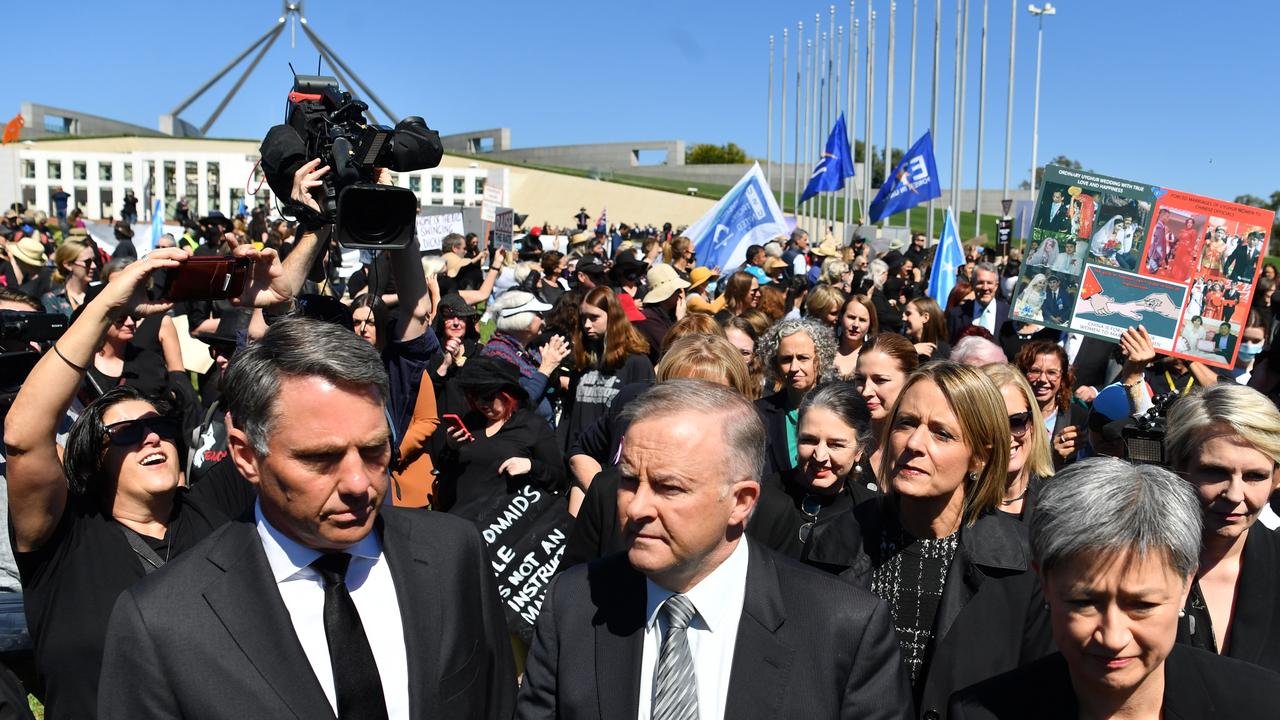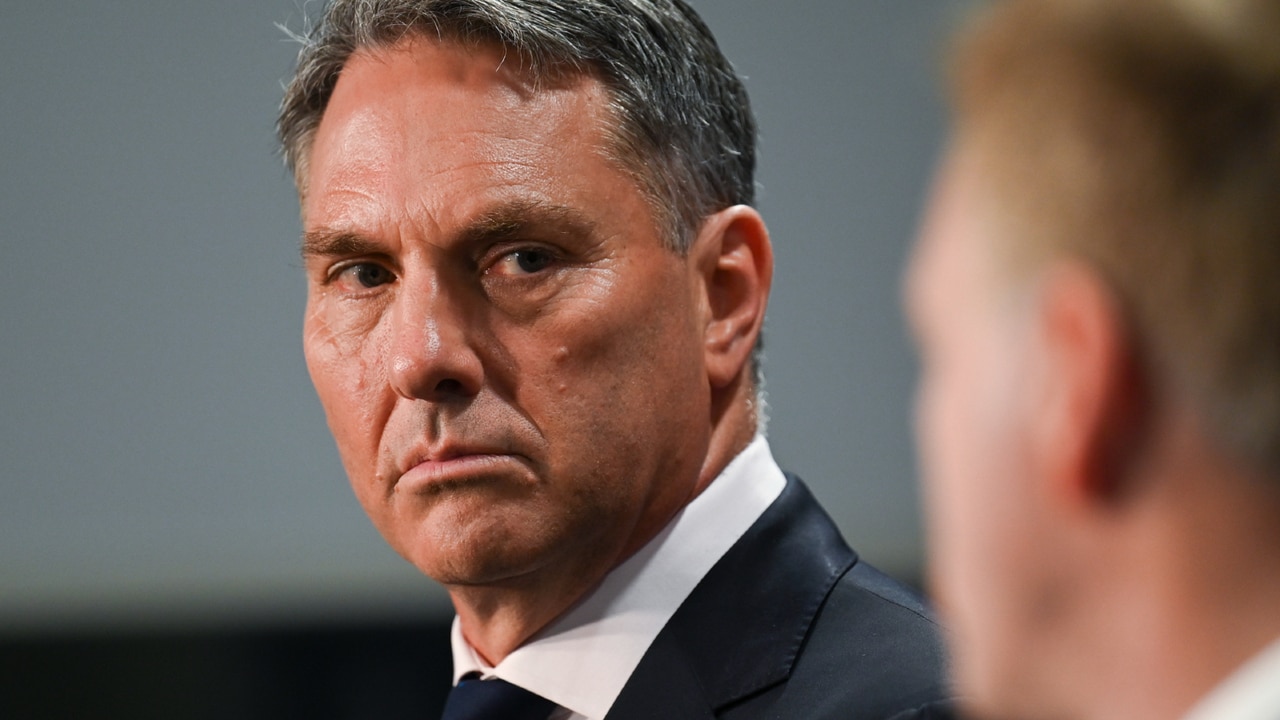Richard Marles’ journey from the Australian Labor Party ranks to the Deputy Prime Ministership is a compelling narrative. This exploration delves into his career progression, highlighting key political appointments, policy contributions, and legislative achievements. We’ll examine his role as Deputy Prime Minister, analyzing the challenges he faces and his approach to domestic and international issues. His foreign policy stances, particularly regarding Australia’s relationship with China and the Indo-Pacific region, will be scrutinized, alongside public perception and media portrayals.
The analysis will encompass his public speaking style, communication strategies, and the impact of his significant actions and statements. By examining these facets, we aim to provide a comprehensive understanding of Richard Marles’ influence on Australian politics and his contributions to the national discourse.
Richard Marles’ Political Career
Richard Marles’ career exemplifies a steady ascent within the Australian Labor Party, marked by significant policy contributions and a range of high-profile roles. His journey showcases a commitment to progressive politics and a dedication to serving the Australian people.Richard Marles’ career progression within the Australian Labor Party has been characterized by increasing responsibility and influence. His trajectory reflects both strategic political maneuvering and consistent dedication to his chosen path.
Key Political Appointments and Positions
The following timeline Artikels Richard Marles’ key appointments and positions held within the Australian Labor Party and the Australian Federal Parliament. This provides a clear picture of his career trajectory and the increasing responsibility he has undertaken.
- 2007: Elected to the Australian House of Representatives for the seat of Corio.
- 2013-2016: Served as Parliamentary Secretary for Defence.
- 2016-2019: Appointed Shadow Minister for Defence.
- 2019-2022: Served as Shadow Minister for Defence and Deputy Leader of the Australian Labor Party.
- 2022-Present: Appointed Deputy Prime Minister and Minister for Defence.
Significant Policy Contributions and Legislative Achievements
Richard Marles has been involved in the development and implementation of several key policy initiatives. His contributions reflect a focus on national security, economic development, and social justice. Specific examples are difficult to isolate to individual contributions given the collaborative nature of policy making, however, his leadership roles have undoubtedly shaped outcomes.His time as Shadow Minister for Defence, for example, saw him articulate a strong and consistent oppositional stance on national security issues, influencing the debate and shaping Labor’s policy platform in this critical area.
Richard Marles, Australia’s Deputy Prime Minister, is known for his sharp political acumen. For a different kind of puzzle-solving challenge, you might enjoy exploring the intricacies of wordplay found in the nyt crossword clues ; perhaps Marles himself finds a moment for this relaxing pastime amidst his busy schedule. Understanding complex issues, whether political or cryptic, requires similar levels of insightful thinking.
His current role as Minister for Defence provides a significant platform for the implementation of his policy vision.
Comparison with Other Prominent Figures in Australian Politics
Comparing Richard Marles’ political stances with other prominent figures requires careful consideration of specific policy areas. For instance, while his approach to national security shares some common ground with other centrist figures, his emphasis on multilateralism and international cooperation may differ from more isolationist viewpoints. Similarly, his economic policies, generally aligned with the Labor Party’s platform, may contrast with the more conservative approaches of some Liberal Party members.
Deputy Prime Minister Richard Marles’s recent focus on economic stability is particularly relevant given the current business climate. The news of mosaic brands voluntary administration highlights the challenges facing Australian businesses, and understanding these difficulties is crucial for shaping effective economic policies. This situation underscores the importance of Mr. Marles’s role in navigating these complex economic headwinds.
A detailed comparison requires analysis of specific policy positions across a range of issues, considering the evolving political landscape and the nuances of individual viewpoints.
Illustrative Examples of Marles’ Actions and Statements
This section provides three detailed examples of significant actions and statements made by Richard Marles during his political career. Each example illustrates his political positions and the impact they had on the Australian political landscape. The examples chosen represent a range of policy areas and highlight different aspects of his political style.
Response to the AUKUS Submarine Deal Announcement, Richard marles
“This is a game-changer for Australia’s national security. The acquisition of nuclear-powered submarines will significantly enhance our defence capabilities and deter potential adversaries.”
This statement, made following the announcement of the AUKUS security pact, encapsulates Marles’ strong support for the deal. The context was the significant shift in Australia’s defence strategy, moving away from conventional submarines to a nuclear-powered fleet. The impact was substantial, both domestically and internationally. The deal solidified Australia’s strategic alliance with the United States and the United Kingdom, while also generating debate about the cost and implications of nuclear technology.
Public reaction was mixed, with some praising the deal as a necessary step to ensure national security and others expressing concerns about cost, environmental impact, and the potential for nuclear proliferation. The debate continues to shape the Australian political landscape.
Addressing the China-Australia Relationship
“We need a relationship with China that is both robust and realistic. We must be clear about our differences, while also seeking areas of cooperation.”
This statement reflects Marles’ approach to navigating the complex relationship between Australia and China. The context is the ongoing tension between the two countries, stemming from trade disputes, human rights concerns, and differing geopolitical perspectives. The impact of Marles’ statement was to articulate a balanced approach that seeks to manage the relationship pragmatically, acknowledging the challenges while also pursuing opportunities for cooperation.
Public reaction was largely positive, with many appreciating the measured tone and the emphasis on both cooperation and robust communication. This nuanced approach was a departure from some of the more confrontational rhetoric that had previously characterized the relationship.
Statements on Climate Change Policy
“We need ambitious climate targets and a clear plan to achieve them. This is not just an environmental issue; it’s also an economic opportunity.”
This statement highlights Marles’ commitment to addressing climate change. The context is the growing global consensus on the need for urgent action to mitigate climate change and the increasing economic opportunities associated with renewable energy and sustainable practices. The impact of his statements has been to position the Labor party as a strong advocate for ambitious climate action.
Public reaction has been generally favorable from environmental groups and those advocating for climate action, although some remain skeptical of the government’s ability to meet its targets. The statement also emphasized the potential for economic growth through investment in green technologies, highlighting a key aspect of the Labor party’s climate policy.
Richard Marles’ career exemplifies a dynamic and influential presence in Australian politics. From his early days within the Labor Party to his current position as Deputy Prime Minister, his trajectory reflects both strategic political maneuvering and a commitment to specific policy goals. Understanding his foreign policy positions, communication style, and public image provides crucial insight into the current political landscape of Australia.
This overview serves as a starting point for further exploration of his ongoing contributions to the nation.
Expert Answers: Richard Marles
What is Richard Marles’ educational background?
While specific details may require further research, information on his education is readily available through reputable sources such as his official biography or news articles.
What are Richard Marles’ main policy priorities?
His policy priorities are likely to encompass key areas such as national security, economic management, and social justice, but detailed information should be sought from official government sources or reputable news outlets.
What is Richard Marles’ stance on climate change?
This requires further research into his public statements and policy positions on environmental issues. Consult official government websites or reputable news sources for the most accurate information.


